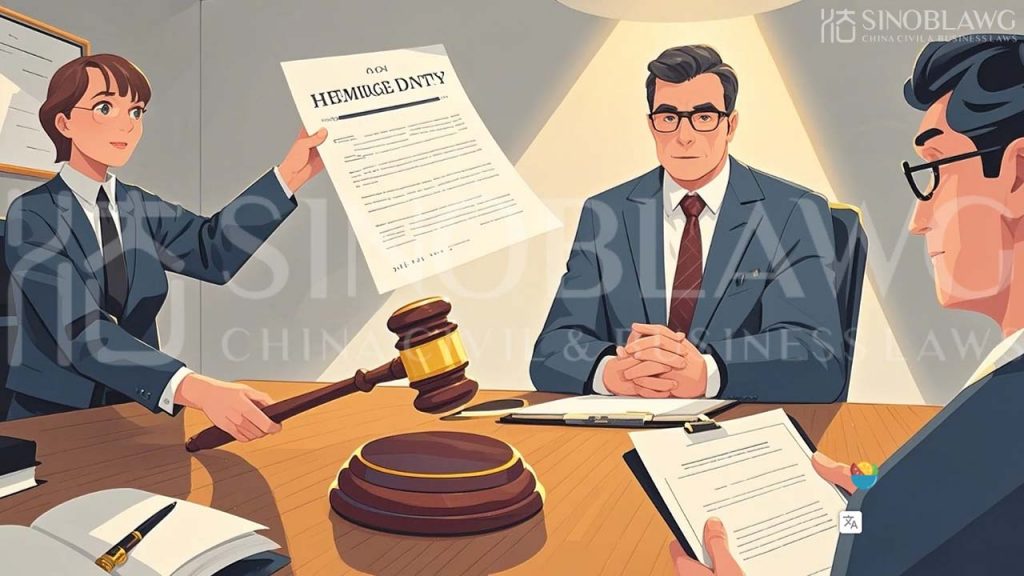January this year, I wrote a post commenting on the then ongoing high-profile employment dispute involving the general manager, Mr. Wang Zhuo and his employer, Shanghai Jahwa Corporation, a listed company in China. You can click here for more: https://www.sinoblawg.com/?cat=7.
Today, a piece of news ran on a news website shedding the final lights on the case. You can click here for the news in Chinese version.
This news said that on September 25, Shanghai Second Intermediary People’s court rendered the final decision which affirmed the lower court judgment of reinstating the labor relationship between Jahwa general manager and the Jahwa corporation. The corporation said it would execute the court decision, and thus offered Mr. Wang Zhuo a new job as a researcher on Chinese traditional cultural effects on the company’s business and requested Mr. Wang to produce a report in not less than 20,000 words every week. Oh, yeah, his new salary is RMB 6,000 per month, a small fraction of his previous monthly salary of RMB 54,495. I highly doubt that this is the result Mr. Wang Zhuo has been fighting for more than a year for. He may feel sorry for himself.
The title of the news is: ex-general manager of Jahwa in doghouse.
As a small tip to general managers in China (including expat managers), when you are caught in employment dispute with your employer or otherwise is threatened with loss of job in China, your best policy is to bargain for a settlement as favorable as possible. Don’t run yourself to Chinese labor arbitration or courts for justice. It is not out there for you.
This ridiculous outcome is the result of the ridiculous logic or understanding of Chinese labor laws and corporate laws.
Both labor arbitration commission and two-layered courts (trial and appellate courts) ruled that the corporate employer may through its board of directors (as required by China Company Law) remove the general manager from his position as general manager, which is the power bestowed to the company under China Company Law; on the other hand, they all upheld that the company cannot terminate the labor relationship between the removed general manager and his employer unless the conditions prescribed in China Labor Contract Law are satisfied. They even invented the “relationship of post/position” to distinguish from the traditional “relationship of employment/labor”.
According to that logic and understanding, Mr. Wang Zhuo while deprived of his position of general manager still maintained a valid labor relationship with Jahwa company. Accordingly, since Jahwa company didn’t have a legal ground under China Labor Contract Law to terminate the labor relationship, then the labor relationship should be upheld and restored. Here comes to the news: Mr. Wang Zhuo was offered with a new job with a greatly deflated salary.
This is a stupid drama.
The real intention of reinstatement claim under China Labor Contract Law is to send the wrongly dismissed employee back to its original position which has the same job duties and offers the same remuneration. But in the cited case, the general manager as an employee is not put back in its prior position as general manager but given with a new job. In essence, the court is not reinstating his employment but amending his labor relationship with his employer. Apparently courts cannot request the company to serve as general manager again as the courts believe that the company has the power to remove Mr. Wang Zhuo’s general manager title.
This is confusing, isn’t it? What is really a reinstatement claim? Some vacuum legal concept without substance?
Again, I think it is a conspicuous mistake to divide and distinguish the so called “relationship of post/position” (presumably under China Company Law) and “labor/employment relationship” (presumably under China Labor Contract Law). When a general manager or other high-rank officers mentioned in China Company Law is dismissed from his position, then his labor relationship with the company is finished at the same time. As a matter of fact and law, high-ranking officers in a company should be treated differently from ordinary employees of the company. High-rank officers are more in a fiduciary capacity as in an agency relationship and the company can dismiss them any time as the principal in an agency can do. General manager shall not have the right to raise the reinstatement claim against its employer.
That said, I am not saying that general managers so removed should not be compensated for their service in the past. In fact, the company should compensate them in the same way as they compensate other legally dismissed employees.
In the news, Jahwa company said they would seek to correct the mistake by activating the review proceeding under China Civil Procedural Law. Maybe, it may wait for its victory in the end.






Comments